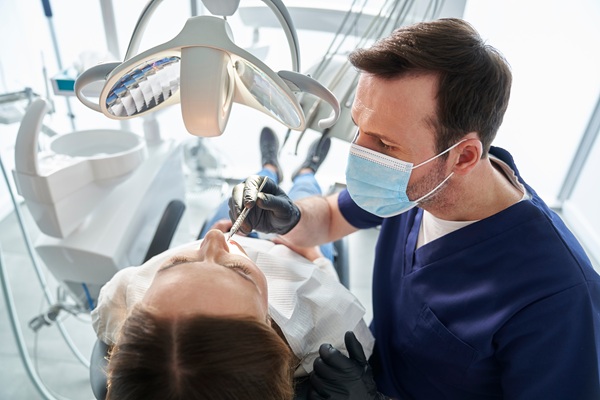 If you are getting dentures, you might want to learn how to eat and speak with them.
If you are getting dentures, you might want to learn how to eat and speak with them.
The good news is there are a few ways you can do that. It just takes some patience. Within no time, you will be speaking and eating, just like usual.
Eating with the false teeth
It takes some time to get used to false teeth. However, a few strategies can help patients have more self-esteem with their teeth. Chewing might cause food to taste different, and eating might feel different. It takes some time for the brain to adjust to the new sensation. The foreign feeling often overpowers any messages from the taste buds, but it just takes some getting used to.
It might be hard to sense hot drinks and foods since the teeth play a large role in that sensation. Patients should take smaller bites at first to get accustomed to the feeling. Cut the food into smaller pieces at first and check the temperature. Then it is possible to move on to larger bites.
Chewing the food evenly on both sides of the mouth is critical. That way, there will be equal pressure on the false teeth, reducing the risk of sores in the mouth. Patients can also eat softer foods, such as cooked vegetables, eggs, and meat cut into small pieces. Pasta is another right choice.
Learning how to speak with dentures
When speaking, new denture wearers can determine the troublesome words. That might include the S and F sounds. Patients can look online for tongue twisters to practice the difficult sounds. Another tip is to read out loud in front of a mirror. That allows a patient to practice a broad range of sounds and master them once more. It is essential to be patient and speak slowly to relax.
Patients can try biting on the teeth and swallowing before speaking. That will reduce any shifting of the false teeth. If the teeth do move when speaking, it is critical to put them back in the right location. That way, a patient can talk easier. Denture adhesive might reduce shifting, as well. Many types keep the teeth in place all day, so patients do not need to worry about them moving around.
Finally, patients should speak at the right volume. It might seem like a patient is speaking louder than average at first. The mouth’s anatomy changes with dentures, and it also alters how sound moves out. That is more noticeable to the patient than others nearby. But over time, the patient will start to sound more normal when speaking.
Choose the right dentures today
When you first get dentures, you will need to adjust to them for a time. The good news is there are some ways to make the process easier. If you want to know more about dentures, your dentist can help you learn about them. Making an appointment today is your first step.
Recent Posts
Partial dentures are one of the most cost-friendly and effective options for replacing missing teeth. They can either be removable or fixed dentures. This is a guide on what partial dentures are, their benefits, and how to care for them.Partial dentures, commonly known as partials, are artificial replacement teeth that replace a patient's missing teeth.…
Removable artificial teeth are called dentures. They replace permanent teeth lost or extracted due to damage or extensive decay. False teeth are a traditional dental restoration method that has been around for centuries and is still effective today. However, there are things you need to know about them before you start wearing them.Your dentist can…
Dentures give many people a reason to smile again. Instead of living with damaged, unsightly teeth, they now look and feel better than ever.While it is true that issues with the teeth go away, wearing dentures does not prevent other problems from developing. If you wear dentures, keeping them clean is essential to maintaining healthy…


